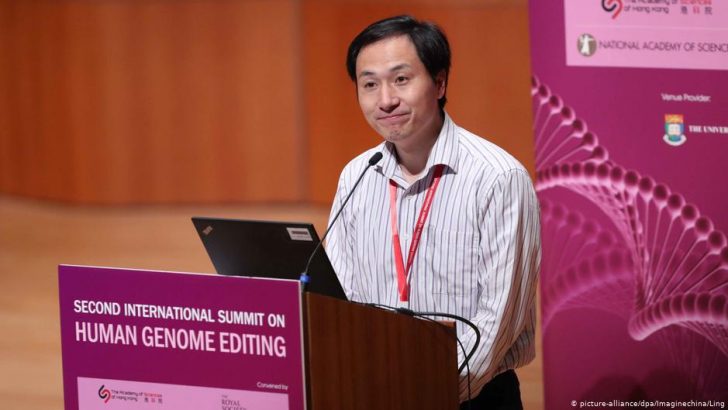A group of 62 doctors, scientists, and bioethicists have issued an open letter urging a global moratorium on experiments that alter human genes that can be passed on to subsequent generations, a practice known as ‘germline editing’.
“Although we recognise the great scientific advancement represented by gene editing technologies and their potential value for an improved understanding and possible treatment of human disease, we strongly believe the editing of human embryos that results in births carries serious problems for which there are no scientific, ethical, or societal consensuses,” the letter from the American Society of Gene and Cell Therapy reads.
The organisation sent the letter last month to US Secretary of Health and Human Services Alex Azar.
“As a result, we contend that such human genetic manipulation should be considered unacceptable and support a binding global moratorium until serious scientific, societal, and ethical concerns are fully addressed,” it reads.
Therapy
In Dignitas personae, its 2008 instruction on certain bioethical questions, the Congregation for the Doctrine of the Faith said that while somatic cell gene therapy is in principle morally licit, “because the risks connected to [germline cell therapy] are considerable and as yet not fully controllable, in the present state of research, it is not morally permissible to act in a way that may cause possible harm to the resulting progeny”.
The instruction also warned against a “eugenic mentality” that aims to improve the gene pool, adding that there could be social stigmas and privileges applied to people with certain genetic qualities, when “such qualities do not constitute what is specifically human.”
The letter is not the first-time prominent scientists have addressed the issue of germline editing; in 2015, a group of five scientists published an op-ed in the journal Nature warning that “heritable human genetic modifications pose serious risks, and the therapeutic benefits are tenuous”.
In March of this year, a different group of 18 scientists took to the pages of Nature to call for a global moratorium on the practice of editing human DNA to create genetically modified babies, until the international community can develop a “framework” for how to proceed in an ethical manner.
At least four scientists have signed their names on both the March and April letters.
Calls
The two recent calls for a germline editing moratorium come in the wake of ethical questions surrounding the purported actions a Chinese biophysicist who claims he created the first genetically modified babies late last year.
The biophysicist, He Jiankui [pictured], says his goal was to edit embryos to give them the ability to resist HIV infection by disabling the CCR5 gene, which allows HIV to enter a cell.
“The alterations induced by Dr He in these two girls would be expected to have been introduced into human germline cells, which would make the changes heritable and therefore passed on to future generations,” the letter asserts.
In the April letter, the scientists drew attention to scientific questions surrounding germline editing that, in their view, must be addressed before scientists proceed. These include how artificial changes to an embryo’s genes “might interact with existing human genetic diversity when these new alterations are passed on to future generations”.
Clinical germline editing is currently banned in the US and in 30 or so other countries throughout the world, including China.
“Before this status quo is revisited, it is vital that extensive discussions and engagement take place among all major stakeholders, including members of the scientific, medical, patient, caregiver, policy, legal, ethical and faith communities,” the letter reads.


 He Jiankui
He Jiankui 